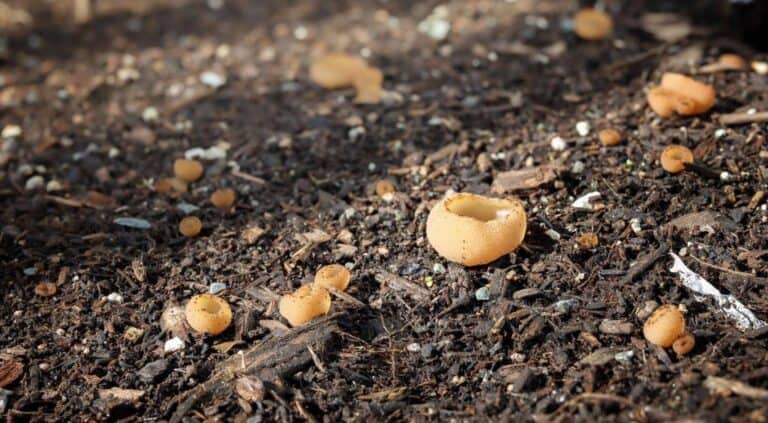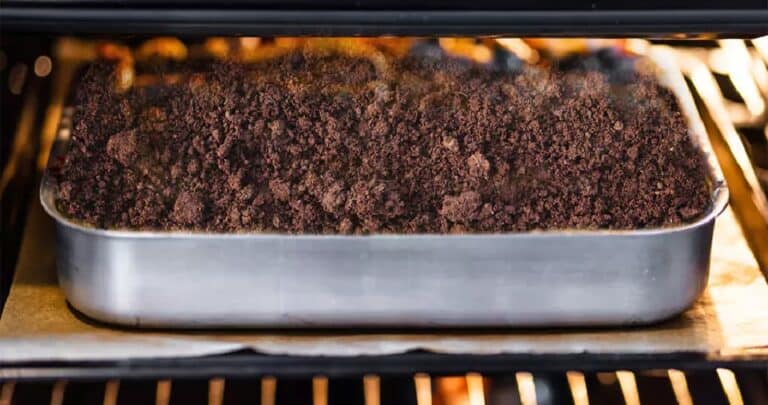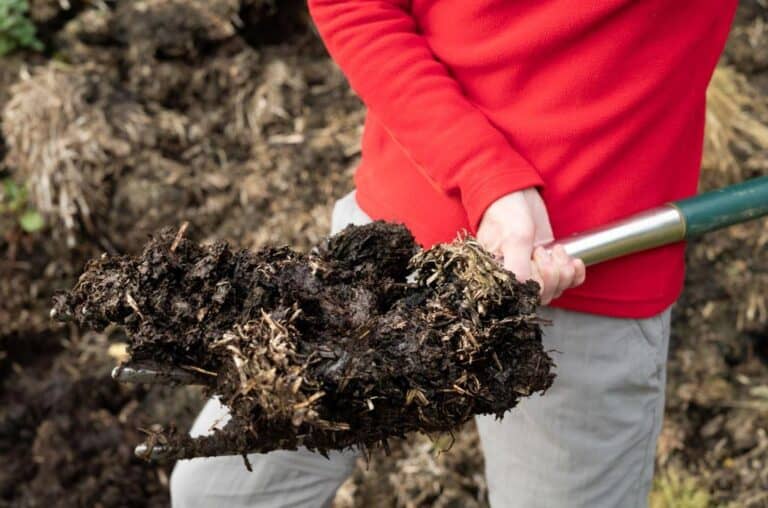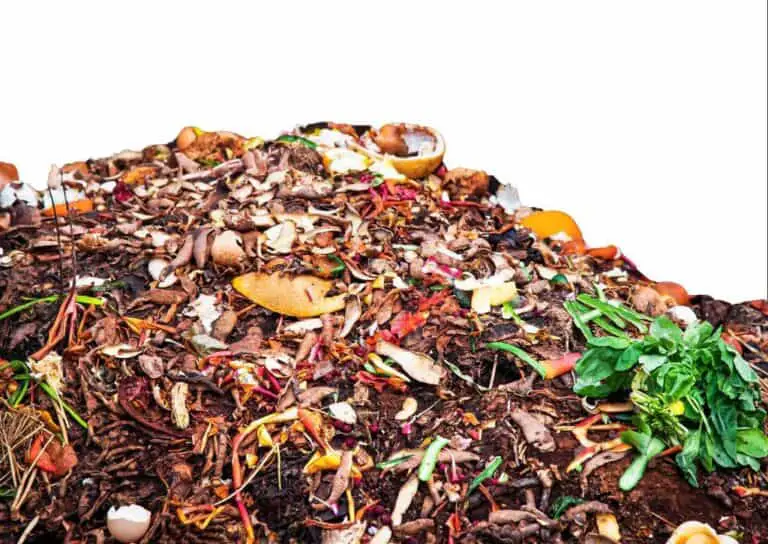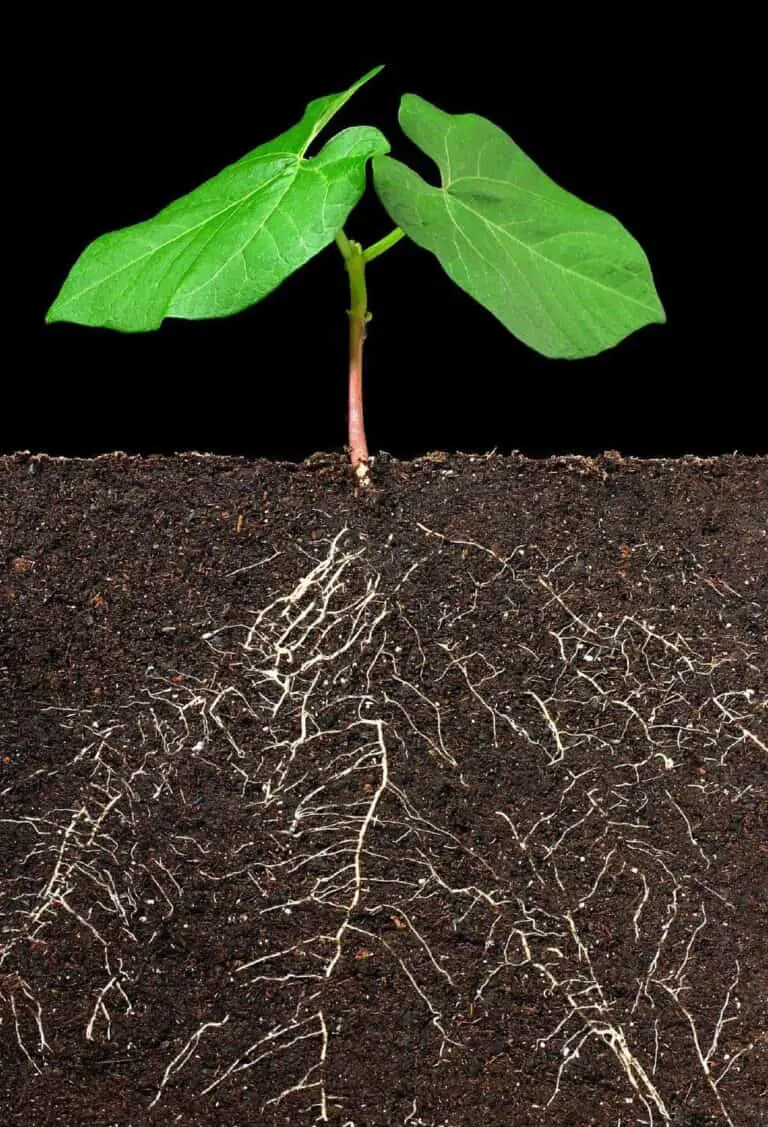Is Goat Manure Good for Vegetable Gardens? Choosing Fertilizer Wisely
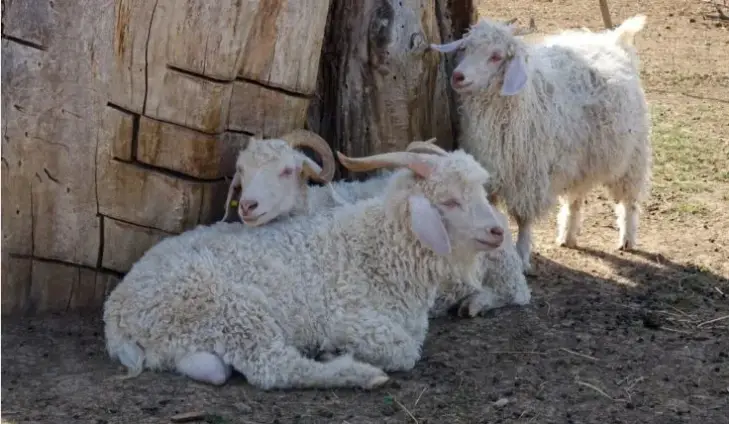
There’s a certain magic to overseeing a vegetable garden, isn’t there? The thrill of planting tiny seeds and watching them burst into a lush, edible landscape is a reward like no other. Yet, as any gardener knows, coaxing the best from your veggies requires a bit of behind-the-scenes wizardry.
Fertilizers play the role of gardening’s unsung heroes, the invisible caretakers that ensure your plants thrive. There’s a question that often sows curiosity in the minds of both seasoned gardeners and budding enthusiasts: is goat manure good for vegetable gardens?
In this horticultural journey, we’ll unravel the secrets of goat manure, a natural wonder that promises to breathe life into your vegetable garden. We’ll explore its rich nutrient content, its role in soil enrichment, and how to use it effectively.
So, if you’re ready to elevate your gardening game and make a conscious choice for your vegetables, read on and discover why goat manure might just be the answer you’ve been seeking.
Understanding the Role of Fertilizers
Before we dive into the specifics of goat manure, let’s establish a fundamental understanding of the role fertilizers play in vegetable gardening. Fertilizers are substances that provide essential nutrients to plants, facilitating their growth and development. These nutrients include nitrogen (N), phosphorus (P), and potassium (K), commonly referred to as NPK.
Vegetable plants, like all living organisms, require a balanced diet to thrive. When your garden soil lacks essential nutrients, the plants suffer, resulting in stunted growth, poor yields, and an increased susceptibility to diseases. This is where fertilizers come to the rescue, supplementing the soil’s nutrient content.
The Organic vs. Synthetic Fertilizer Dilemma
Gardeners face a critical decision when it comes to choosing a fertilizer: organic or synthetic. Synthetic fertilizers are artificially manufactured, providing an immediate nutrient boost to plants. However, they often come with downsides, such as the potential to harm beneficial soil organisms and the risk of over-fertilization.
On the other hand, organic fertilizers are derived from natural sources and work in harmony with the soil’s ecosystem. They release nutrients slowly, ensuring a sustained supply for your plants. Among the organic options, goat manure stands out as a valuable choice.
Is Goat Manure Good for Vegetable Gardens?
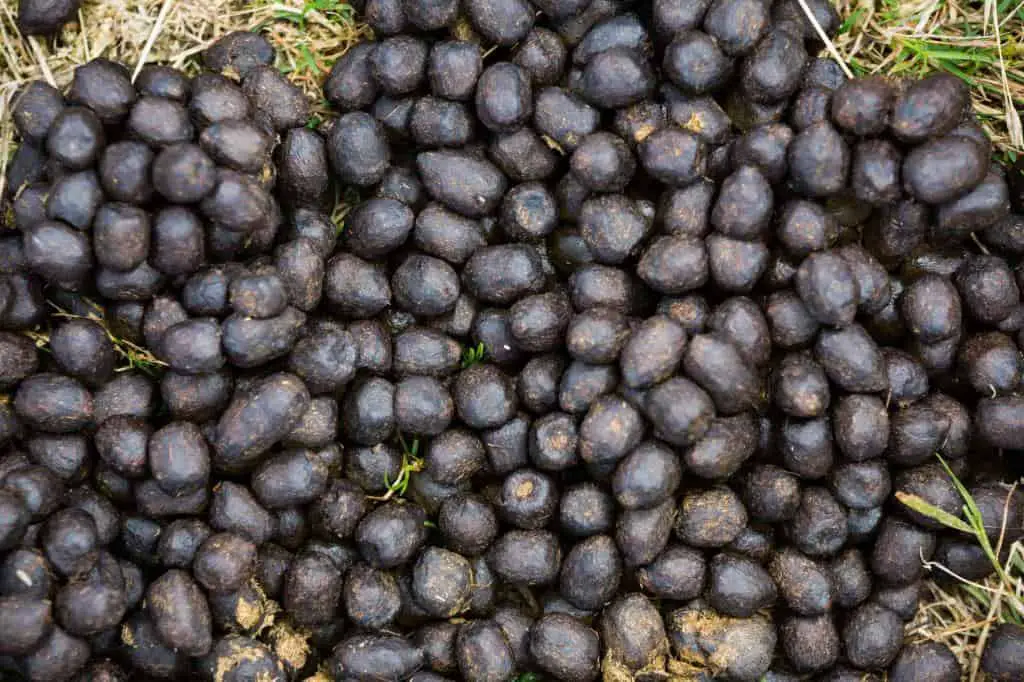
Yes, goat manure is good for vegetable gardens. Goat manure is rich in nitrogen levels, which makes it an excellent soil conditioner. It improves soil texture, which in turn provides a rich environment for roots to grow and allows for excellent water retention.
Using goat manure in garden beds can create optimal growing conditions for plants. The naturally dry pellets are not only easy to collect and apply but are also less messy than other types of manure.
Goat manure can be used in nearly any type of garden, including that of flowering plants, herbs, vegetables, and fruit trees. Goat manure can even be composted and used as mulch.
Goat Manure: The Green Thumbs’ Secret Weapon
Now, let’s explore why goat manure is a popular choice among gardeners:
1. Rich Nutrient Content
One of the most significant advantages of goat manure is its nutrient-rich composition. This natural fertilizer is packed with essential nutrients, including nitrogen, phosphorus, and potassium. In addition to the NPK trio, goat manure provides a variety of micronutrients that are vital for plant growth.
2. Slow-Release Nutrients
Unlike synthetic fertilizers that can lead to nutrient overload, goat manure releases nutrients gradually. This slow-release mechanism ensures a sustained and balanced nutrient supply for your vegetables, reducing the risk of nutrient imbalances and damage to your crops.
3. Improved Soil Structure
Goat manure is not just about feeding your plants; it’s also about enhancing your soil. Its organic matter content helps improve soil structure, making it more conducive to root growth and water retention. Well-structured soil promotes healthier plants and reduces the risk of erosion.
4. Enhanced Microbial Activity
Goat manure introduces beneficial microorganisms to your soil, further enhancing its fertility. These microbes contribute to the decomposition of organic matter, releasing nutrients in a form that plants can readily absorb.
5. Reduced Environmental Impact
Opting for organic fertilizers like goat manure aligns with sustainable and environmentally friendly gardening practices. Unlike synthetic fertilizers, goat manure does not pose a risk of leaching harmful chemicals into the environment or contaminating water sources.
Let’s take a closer look at the nutrient composition of goat manure in the following table:
| Nutrient | Content (%) |
| Nitrogen (N) | 1.5 – 2.5 |
| Phosphorus (P) | 0.5 – 0.6 |
| Potassium (K) | 1.0 – 1.5 |
| Organic Matter | 25 – 35 |
How to Use Goat Manure in Your Vegetable Garden
Now that we’ve established the benefits of using goat manure, it’s essential to understand how to incorporate it into your vegetable garden effectively.
1. Composting
One of the best ways to utilize goat manure is through composting. Combining it with other organic matter, such as kitchen scraps, leaves, and grass clippings, creates nutrient-rich compost that can be used to amend your garden soil. Ensure the composting process is complete before adding it to your garden to prevent burning your plants with fresh manure.
2. Direct Application
If you have well-aged goat manure, you can apply it directly to your vegetable beds. Ensure that the manure has aged for at least six months to a year to allow for the breakdown of potentially harmful pathogens. Apply a layer of composted goat manure to your garden beds, and then mix the manure into the soil to a depth of about 6 to 8 inches.
3. Top Dressing
Using goat manure as a top dressing during the growing season can provide your vegetables with a nutrient boost. Gently spread a thin layer of composted manure around the base of your plants, taking care not to touch the plant stems directly.
Considerations and Precautions
While goat manure is an excellent choice for organic gardening, it’s essential to consider a few precautions to ensure your garden’s success:
1. Avoid Fresh Manure
Fresh goat manure can be too “hot” for your plants, potentially burning them due to its high ammonia content. Always use well-composted manure in your garden to avoid this issue.
2. Monitor pH Levels
Goat manure tends to be slightly alkaline. Regularly monitor your soil’s pH levels and adjust as necessary to maintain the optimal pH for your specific vegetables.
3. Rotate Crops
To prevent the buildup of specific diseases and pests that might affect your vegetables, practice crop rotation in your garden. This involves changing the location of your crops each season.
4. Keep an Eye on Odor
Goat manure can have a strong odor. Be mindful of your garden’s proximity to your home or neighbors, and take steps to mitigate any unpleasant smells.
Other Organic Alternatives to Consider
Other than goat manure, there are several other organic alternatives that can be considered for fertilizing vegetable gardens. One such option is fish emulsion, which is made by breaking down fish parts with water and allowing them to ferment. This nutrient-rich liquid fertilizer is highly effective at providing plants with a boost of nitrogen and other essential nutrients.
Seaweed extract is another excellent choice, as it contains trace minerals and growth hormones that promote healthy plant development.
Another alternative worth considering is compost tea, which involves steeping compost in water to create a nutrient-filled liquid fertilizer. Compost tea not only provides essential nutrients but also introduces beneficial microorganisms to the soil, helping to improve its overall health and fertility.
You may try some uncommon organic fertilizer, like blood meal. Blood meal can be used to provide a quick-release source of nitrogen for plants, making it an ideal option for those looking for fast results.
Overall, there are many organic alternatives to goat manure that can effectively nourish vegetable gardens. By exploring and experimenting with these different options, gardeners can find the best method that suits their specific needs while promoting healthy plant growth and bountiful harvests.
In Conclusion
Is goat manure good for vegetable gardens? The resounding answer is yes. This organic fertilizer provides a host of benefits for your garden, from enriching your soil to nourishing your vegetables. When used thoughtfully and in conjunction with other organic gardening practices, goat manure can be the secret ingredient for your garden’s success.
So, if you’re considering how to choose the best fertilizer for your vegetable garden, don’t overlook the potential of goat manure. Give your garden the gift of nutrient-rich, organic sustenance, and watch it flourish in response to nature’s wisdom.
FAQs on Benefits of Goat Manure in Gardening
How long does goat manure need to age before being used in a vegetable garden?
Goat manure generally needs to age for 6-12 months before being it in a vegetable garden, allowing harmful pathogens to break down.
Can you use fresh goat manure in a vegetable garden?
Fresh goat manure can be too potent for some vegetables, risking the burning of roots or introducing harmful bacteria, so it’s best to compost it first.
What vegetables benefit the most from goat manure fertilization?
Vegetables such as tomatoes, peppers, and leafy greens like spinach and lettuce tend to benefit the most from the nutrient-rich properties of goat manure.
How often should I apply goat manure to my vegetable garden?
Applying goat manure once or twice a year, preferably in the spring or fall, provides adequate nourishment for the entire vegetable growth cycle.
Is goat manure better than other animal manure for vegetable gardens?
Goat manure is often preferred for its balanced nutrient content and lower odor compared to other animal manures, making it a suitable choice for vegetable gardens.
Can using too much goat manure harm my vegetable garden?
Using excessive goat manure can lead to nitrogen burn, soil salinity, and nutrient imbalances, potentially harming the vegetables and affecting their growth.
How can I prevent the odor from fresh goat manure in my vegetable garden?
To minimize odor, mix fresh goat manure with carbon-rich materials like straw or leaves and ensure proper aeration during the composting process.
Are there any vegetables that should not be fertilized with goat manure?
Root crops like carrots and radishes may fork or develop an unpleasant taste when fertilized with fresh goat manure, so it’s advisable to use composted manure instead.
How do I test the quality of the goat manure I’m using for my vegetable garden?
Test its quality by checking for an earthy smell, uniform texture, absence of weeds and foreign objects, and a balanced nutrient composition. Conducting a soil test can also help assess its impact on the garden.

